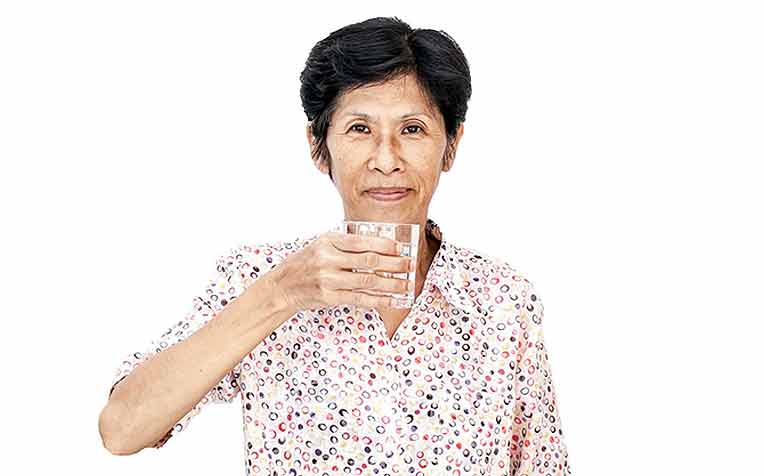
Urinary incontinence in the elderly can be better managed by limiting consumption of diuretics. However, it is important to drink sufficient plain water to prevent dehydration.
Depending on the cause, urinary incontinence may or may not be permanent.
"More importantly, there are treatments in place to either cure or improve the condition. If you are experiencing frequent urine leakage or if the leakages are affecting your quality of life, do not hesitate or feel embarrassed to discuss it with your family doctor," advises Dr Soh Ling Ling, Associate Consultant for Post-Acute and Continuing Care at Sengkang Community Hospital (SKCH). SKCH is managed by SingHealth Community Hospitals, a member of the SingHealth group.
Why seek help for urinary incontinence?
It is important for you to seek medical advice because urinary incontinence may:
- Indicate a more serious underlying condition
- Limit your social interactions and restrict your activities
- Increase your risk of falls as you rush to the toilet
During the consultation, your family doctor will ask questions about your symptoms, find out more about your medical history, existing medications, do a physical examination and do certain urine or blood tests before instituting treatment. You may be referred to a specialist if further tests and treatment at a hospital is necessary.
Tips to cope with urinary incontinence
Urinary incontinence can be a challenging and inconvenient problem. If a weak or overactive bladder is affecting you, here are some steps you can take to cope with it:
1. Avoid or limit beverages that encourages urination
Drinks that contain alcohol or caffeine such as coffee and tea are diuretics, which increase the production of urine. Try to cut down on these but ensure that you drink sufficient plain water to stay hydrated.
2. Maintain a healthy weight
When you are overweight, fatty tissue may exert pressure on the bladder, weaken your pelvic floor muscles and cause urinary incontinence. Aim for a healthy weight through a balanced diet and regular exercise.
3. Use urinary incontinence products
There are incontinence products, such as disposable underwear and adult diapers that come with an absorbent layer. Available at pharmacies, these products can help with odour control and keep you dry and comfortable.
4. Quit smoking (if you haven't)
Smoking is a risk factor of urinary incontinence. Smoker's cough, which develops in long-term smokers, also strains your pelvic floor muscles, increasing the risks of a leak.
Read the previous page for common causes of urinary incontinence.
Unsure when to seek help for urinary incontinence? Click here to find out
Check out other articles on healthy ageing:
5 Tips to Age Gracefully and Healthily
7 Common Ageing Problems Faced by Seniors
Must-Know Nutrition and Diet Tips for Seniors
Why Seniors Need to Be Vaccinated
Contributed by















